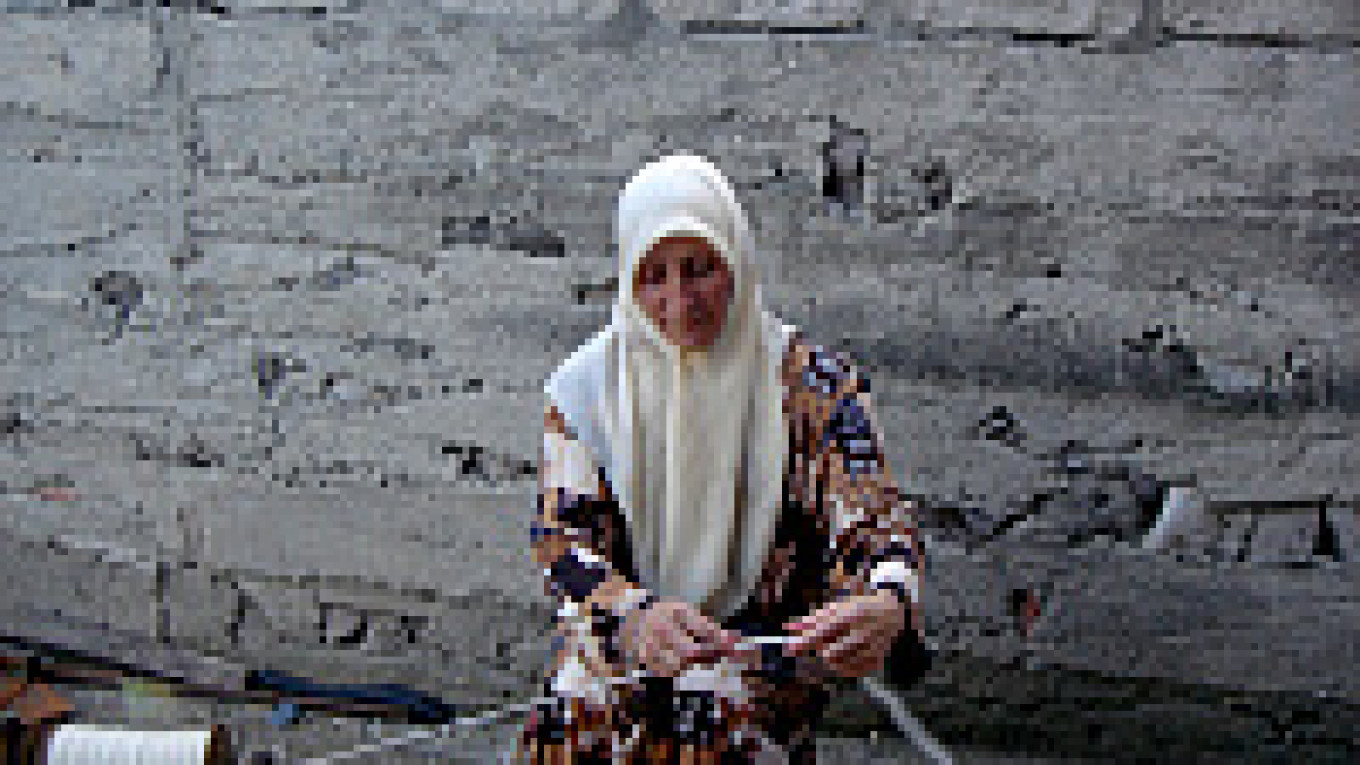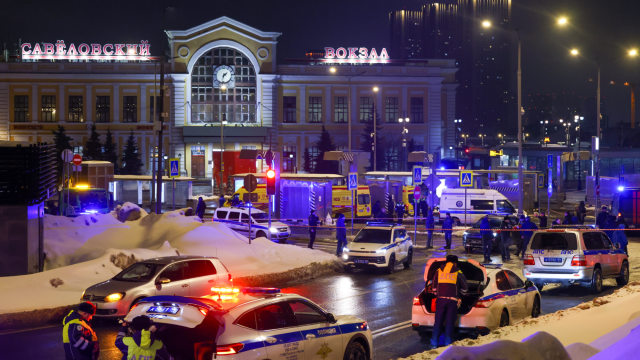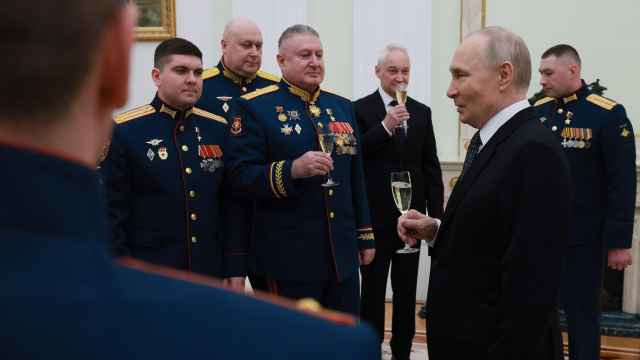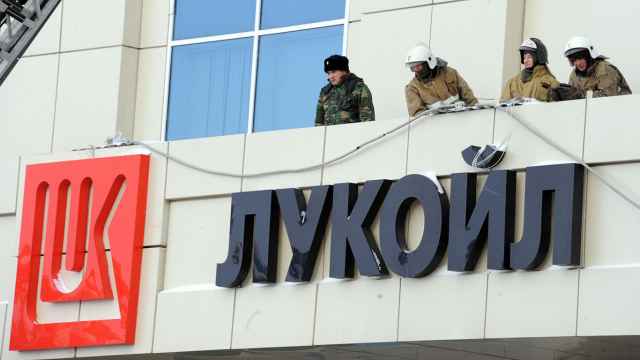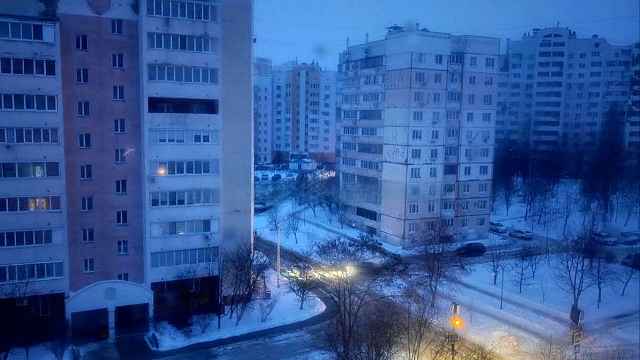"It's all about politics and money," he said. "No one is interested in us because we're just people. We drink coffee, we go to work and we come home. Who's interested in that?"
The deep psychic wounds left behind by a bloody 2005 attack on the Kabardino-Balkaria capital, Nalchik, are visible almost everywhere in this impoverished North Caucasus republic. Now, as residents like Kudayev await the start of the trial of the 58 young Muslim men accused of participating in the attack, they have returned quickly and painfully to the fore of everyday life.
Set to begin in the upcoming weeks, the size of the trial matches the scale of the attack -- the largest since the Soviet show trials of the 1930s -- even necessitating the construction of a super-sized courtroom. But no amount of governmental assurances have succeeded in silencing critics who point to evidence of widespread torture, judicial corruption and the seemingly bizarre decision to try the 58 defendants en masse.
"First, it's the justice system at fault. It should be independent, just and objective, but the courts here are terribly dependent on the authorities and corrupt," said Magamed Abubakarov, a lawyer for one of the defendants, over a breakfast of Turkish coffee and cigarettes in a Nalchik hotel. "The three branches of power should be independent, but here they are interwoven."
As many as 200 young men staged a coordinated attack against police, security and military sites in Nalchik on Oct. 13, 2005. Thirty-five servicemen and 12 residents were killed in the clashes that ensued. Up to 95 attackers were killed, according to official estimates, although exact figures are still disputed.
In the years directly preceding the attack, Kabardino-Balkaria experienced a sharp crackdown on unauthorized religious activities. Mosques and informal religious organizations were shuttered, and young people avoided gathering in groups, fearful of disappearing at the hands of the security services.
Although late Chechen warlord Shamil Basayev claimed responsibility for the raid, most here refuse to call it an act of terrorism. It is most often called an uprising, and those who participated in it are referred to -- almost reverently -- as the opposition.
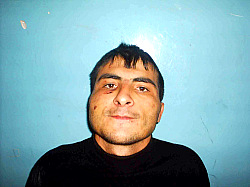 Islamcom.ru Rasul Kudayev, his head swollen and misshapen, seen in an Internet photo. | |
Still, in the chaotic aftermath of the attack, then-President Vladimir Putin ordered a harsh military crackdown on the region. Three years later, truckloads of gun-wielding Interior Troops still patrol many neighborhoods, a visible reminder of who really rules the city's pockmarked streets.
It was in this climate, in the days and weeks following the brutal attacks, that security forces swept through Nalchik and surrounding villages. Dozens of young men disappeared into unmarked trucks, many dragged away in front of their families.
Ten days after the attack, a group of heavily armed soldiers from the 6th Department of the Interior Ministry -- an anti-terror task force implicated in human rights violations across the North Caucasus -- surrounded Rasul Kudayev's home, said his brother Arsen and mother. It would be more than a year before Arsen would see him again.
No one disputes that Kudayev, who served time in the U.S. military prison at Guantanamo Bay from 2002 to 2004 and suffers from kidney problems, was at home on the day of the Nalchik attack. Like many of those on trial, he is implicated as an accomplice and accused of participating in the planning of the attack.
For the families of the detainees, the disappearances were only the beginning. In 2005, disturbing photographs of several injured detainees began to circulate on the Internet. In one, a dazed Kudayev, his head swollen and misshapen, is nearly unrecognizable.
Kudayev filed a lawsuit against the government in the European Court of Human Rights with the help of the Russian Justice Initiative, a human rights group working in the North Caucuses. He maintains that he was tortured into signing the confession that prosecutors plan to use against him at the upcoming trial.
He is not alone. At least three other detainees have claimed torture to the court in Strasbourg. More are currently in the process of filing complaints.
In a series of letters smuggled out of prison, detainees described their ordeal. Their stories are harrowing, speaking most frequently about the terrifying effect of torture and the sense of hopelessness it has engendered in them. "If I don't give them the testimony they need, they will find a way to get it out of me; they're above the law," wrote one detainee. "After that, I just wished that I was already dead and that it was all over."
Roemer Lemaitre, Russian Justice Initiative's chief legal expert, criticized local prosecutors for moving ahead with the trial despite substantial physical evidence of torture.
"Despite the fact that several of the accused have repeatedly stated that their statements during the preliminary investigation were made under or after torture ... the prosecutor's office time and again refuses to investigate these claims," he said.
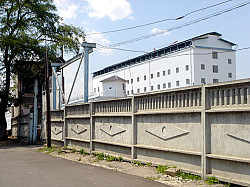 Geraldine Fagan / For MT The Interior Ministry prision in Nalchik where Rasul Kudayev and 57 other men are being held on suspicion of participating in a 2005 attack on the city. | |
The Kabardino-Balkaria Prosecutor's Office declined to comment for this report, directing all questions to the Investigative Committee. The Investigative Committee did not respond to a written request for information sent in early August.
Russia has frequently come under fire from rights groups, who accuse security services of using torture and kidnapping. Still, if the stories told by detainees in Nalchik are true, it would place them among the worst cases in recent years and likely cast a pall on the upcoming trial.
The government is trying to balance the positives of a large conviction against any negative press it might receive, said Adam Dolnik, senior research fellow at the Center for Transnational Crime Prevention in Australia. Despite some negative press, the Kremlin believes that the trial will help draw attention to the ongoing violent campaigns in the North Caucasus and thus be politically beneficial, he said.
"The local and federal leadership will probably just maintain its line and will accuse these human rights groups of sponsoring terrorism in the region," he said.
Kabardino-Balkaria has a small Islamic insurgency operating in the republic's thickly forested areas. Led by charismatic militant Anzor Astemirov, the group is believed to number no more than 100 men and to mostly conduct targeted killings of security officials. In January, Astemirov claimed responsibility for the death of Colonel Anatoly Kyarov, shot multiple times in plain sight in downtown Nalchik. Kyarov headed a division of the 6th Department established to capture Astemirov.
Pro-rebel web sites and the media, not excesses by the security services, are to blame for anti-government sentiment here, said Boris Pashkov, head of Kabardino-Balkaria's State Committee for Community and Social Affairs. It is all part of a divide and conquer strategy employed by the rebels, he said.
"First they separate the police from the authorities and then they attack the authorities," he said. "It's actually a very basic strategy."
Seated in an air-conditioned government office Pashkov, a middle-aged bureaucrat who invokes Marxist dialectics at one point to explain the republic's troubles, turns coolly contemplative when asked about the legitimacy of the upcoming trial.
"Justice is a philosophical concept," he said with a smile. "We can talk about philosophy all day long if you want to, but it's an open-ended process."
For the Nalchik defendants, however, the question of justice lies far outside the realm of metaphysics.
On Feb. 16, defendant Valery Bolov died of cirrhosis of the liver, according to authorities. Despite the official version of his death, friends and family believe that it was caused by abuse suffered in detention. Other detainees have encountered similar health problems.
Azamat Akhkubekov is currently in a military hospital receiving treatment for lung failure. His wife, Yelena, said her husband arrived in prison three years ago in perfect health. Now, she says, his lungs are operating at only 25 percent capacity.
There is no question that the prospect of the trial has done little to alleviate the sense of alienation endemic in Nalchik's population.
"We have a saying in Balkar," Arsen Kudayev said with a sardonic grin. "If the mullah -- who was the judge in tsarist times -- rapes your wife, who are you going to appeal to?"
A Message from The Moscow Times:
Dear readers,
We are facing unprecedented challenges. Russia's Prosecutor General's Office has designated The Moscow Times as an "undesirable" organization, criminalizing our work and putting our staff at risk of prosecution. This follows our earlier unjust labeling as a "foreign agent."
These actions are direct attempts to silence independent journalism in Russia. The authorities claim our work "discredits the decisions of the Russian leadership." We see things differently: we strive to provide accurate, unbiased reporting on Russia.
We, the journalists of The Moscow Times, refuse to be silenced. But to continue our work, we need your help.
Your support, no matter how small, makes a world of difference. If you can, please support us monthly starting from just $2. It's quick to set up, and every contribution makes a significant impact.
By supporting The Moscow Times, you're defending open, independent journalism in the face of repression. Thank you for standing with us.
Remind me later.


